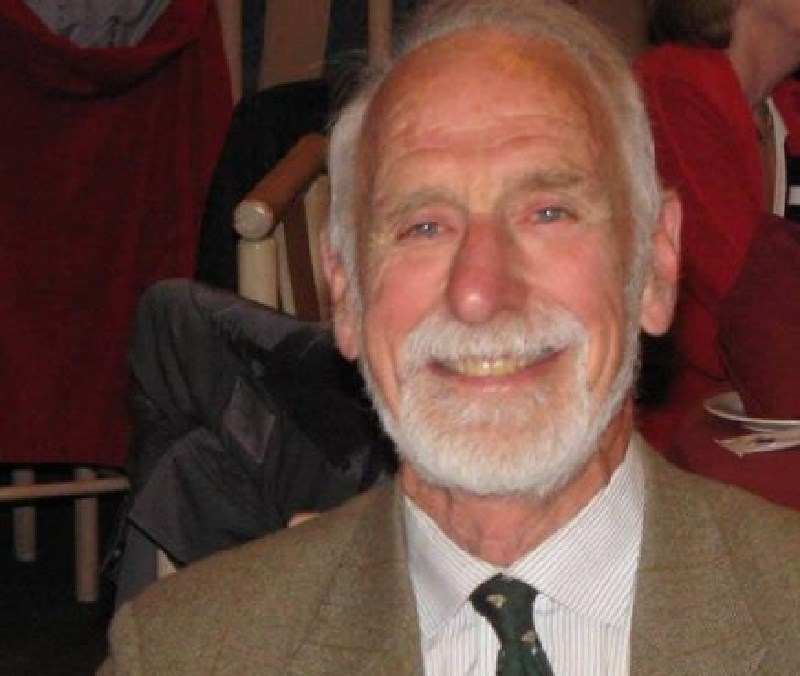Groucho Marx famously stated: “Those are my principles, and if you don’t like them … well, I have others.”
A local counterpoint to this worldview is former Victoria member of Parliament and federal cabinet minister David Anderson, recently awarded the Order of British Columbia for a lifetime of public service in support of environmental issues.
Those of us who served as his political advisers cringed if he spurned potential allies, winced when he irked cabinet colleagues and ground our teeth trying to change his mind once it was made up. But we stuck around, knowing these traits were in pursuit of a principled and greater good.
In 1997, Anderson was promoted to the role of minister of fisheries and oceans. A prevailing DFO credo at the time was short-term economics: fisheries openings and licences were granted less on scientific evidence of sustainable yield, and more on the basis of chummy relationships and short-term financial gain; in short, the approach that paved the way for the Atlantic cod-stock collapse.
Anderson sized up the situation as follows: “I know who speaks for the sports fishermen. And I know the unions speak for the commercial fishermen. But who speaks for the fish?” And so, Anderson took on this vote-less group as a primary stakeholder. Decisions in DFO started to flow from a precautionary, science-based approach, with fish as a primary constituent.
Many fisheries unions in British Columbia savaged Anderson for the closures and licence buy-backs he brought in. Many sports fishermen assailed him for a moratorium on salmon retention. Then-B.C. premier Glen Clark joined the pile-on, leading a local newspaper to note that Clark was the only big fish in B.C. waters, and would swallow Anderson whole.
For a long time, this looked possible. However, Anderson persisted against the onslaught, securing a Canada-U.S. Pacific Salmon Treaty, and his once-heretical support of the interests of the fish shifted to the mainstream.
Later, as minister of environment, Anderson was quick to irritate possible allies by noting that he was minister of the environment and not minister of environmentalists. Against this rather unpromising backdrop, he soldiered on to a succession of achievements that seem mind-boggling in scope and ambition for a single minister’s tenure: passing Species at Risk legislation; ensuring Canada signed the Kyoto protocol; acting as the first elected Canadian president of the United Nations Environment Program; helping to secure an international Biodiversity Protocol; and ensuring Canada’s accession to the Stockholm Convention on Persistent Organic Pollutants.
In many cases, Anderson challenged orthodoxies that provincial-government sensitivities must always be accommodated by the federal government. The end of coal-fired electricity generation in Ontario owes at least something to his pressure for stricter air-quality standards.
The fact that Victoria, for example, received federal infrastructure funding for projects such as the Galloping Goose trail owes much to his willingness to ignore gerrymandered provincial infrastructure wish-lists and deal directly with local governments to determine their priorities. He also secured federal support for initiatives such as the Clayoquot Biosphere Reserve and Pacific Marine Heritage Legacy Program.
There are several lessons to be drawn from these experiences.
First, it is possible to take unpopular yet principled positions and still be successful. Anderson not only achieved many of his goals but was convincingly re-elected three times.
Second, gains in political life are fragile. After Anderson’s departure from political life, then-prime minister Stephen Harper’s government launched a withering attack on scientific capacity and evidence-based decision-making in Canada. Successor efforts include the current work by some Canadian politicians to undo hope for national carbon pricing, despite foremost economists identifying a price on carbon as essential to any meaningful plan to fight climate change.
Third, Canada needs more leaders like Anderson. The United Nations has just launched another sobering report underscoring the gravity of the climate crisis and noting that ours is the first generation to be substantially affected by climate change, but the last one with any chance to stop it. Overcoming this challenge requires leaders who take principled, evidence-based positions in support of our environment.
Thank you, Mr. Anderson, for your service and for giving us much to consider in what we need and want in the B.C. municipal elections and 2019 federal election.
Roy Brooke of Victoria is a former senior policy adviser to David Anderson.



